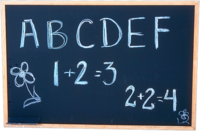Brain Gain

We have previously discussed how a relatively small number of strategies can dramatically reduce your risk of cognitive decline as you get older.
Our recommendations are firmly buttressed by a most important article available for free download at the website of the Journal of the American Medical Association.
We already knew that cognitive training can improve cognitive abilities in older adults but nobody had established the effects of cognitive training on everyday function.
Sherry Willis of Pennsylvania State University led a team of scientists that followed a group of 2,832 adults, aged 65 and older -mean age 73.6 years – who were still living independently between 1998 and 2004. The seniors came from all walks of life, races, and parts of the country, including Birmingham, Alabama; Detroit, Michigan; Boston, Massachusetts and three other major cities. They all had one thing in common when the study commenced: they had no signs of cognitive impairment.
The researchers divided them into four groups of roughly 700 each: three groups that would receive training in either memory (verbal episodic memory), inductive reasoning or speed of processing (visual search and identification) with 4-session booster training at 11 and 35 months after training, and one that would serve as a control.
The memory training program consisted of mnemonic strategies for remembering word lists or texts, such as associating various words, visualizing them or organizing them in specific ways. Reasoning training taught the participants how to spot the pattern in a series, such as “a c e g i… .” The researchers boosted the subjects’ processing speed via practice, practice, practice in identifying an object on a screen after increasingly short exposures.
Over the course of the next five years the researchers asked participants to appraise their skills and to report whether the training had helped with everyday tasks. They also independently evaluated the subjects’ skills in things like finding items in a medicine cabinet. After training, 87 percent of the speed trainees, 74 percent of the reason trainees and 26 percent of memory trainees showed immediate improvement. That advantage over their untrained peers persisted over the next five years.
The training seemed to largely offset the cognitive decline suffered by nearly all of the controls as the years wore on. By the fifth year, significant skill gaps had opened between the people who had done the training and their untrained peers.
It is not enough to continue to do the crossword or sudoku puzzles. The brain must be continually stretched and challenged. It seems that to drive this effect, you have to practice things that you don’t like or things you don’t regularly practice.
Many of us have spent years working on new training strategies, and this research shows just how valuable cognitive training can be for all of us.






